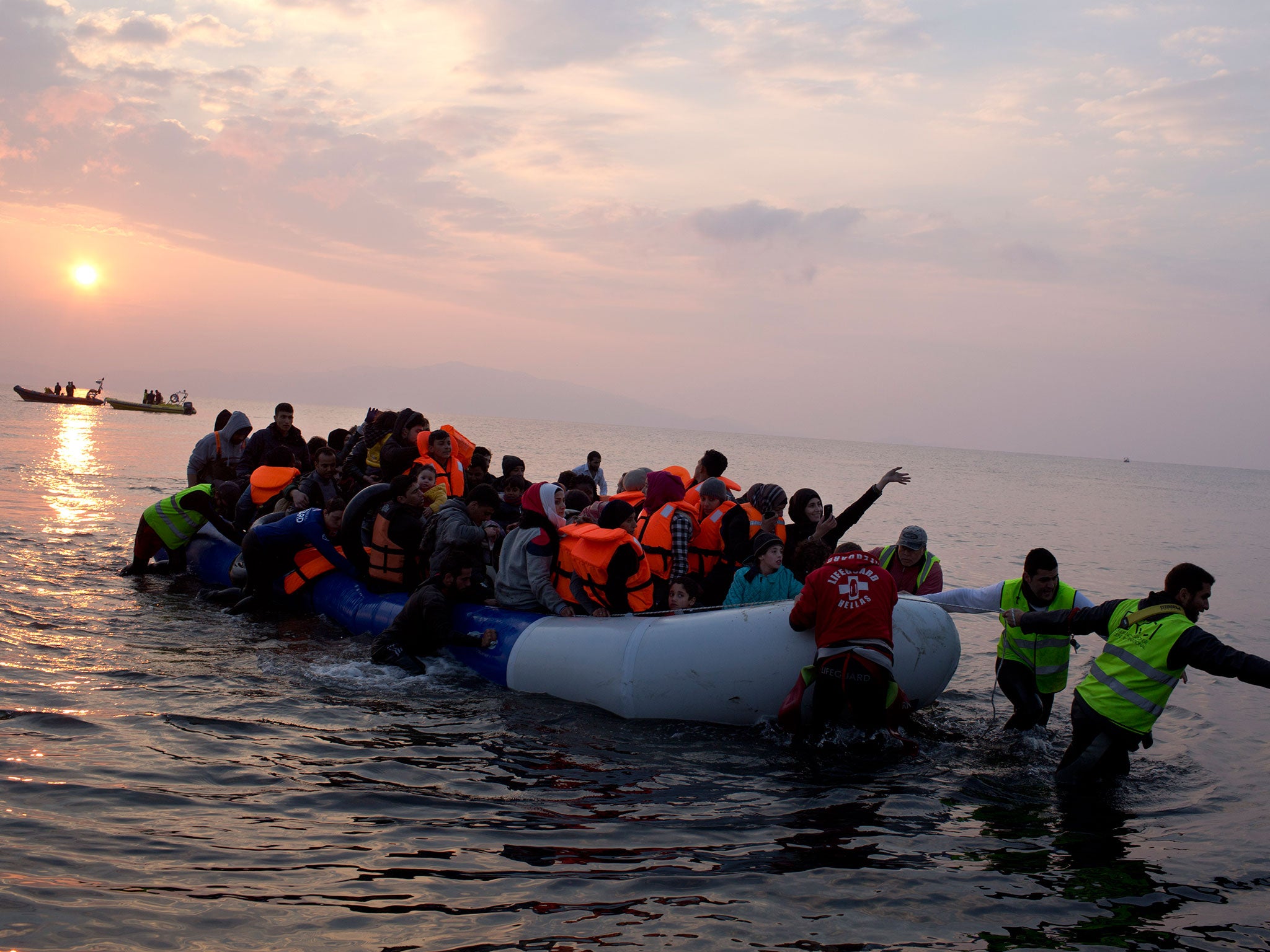Fears grow over refugee safety with EU returns plan set to take effect
A UN official has said the deal to send migrants back to Turkey from Greece could be "illegal" - with protests over the agreement in both countries

Your support helps us to tell the story
From reproductive rights to climate change to Big Tech, The Independent is on the ground when the story is developing. Whether it's investigating the financials of Elon Musk's pro-Trump PAC or producing our latest documentary, 'The A Word', which shines a light on the American women fighting for reproductive rights, we know how important it is to parse out the facts from the messaging.
At such a critical moment in US history, we need reporters on the ground. Your donation allows us to keep sending journalists to speak to both sides of the story.
The Independent is trusted by Americans across the entire political spectrum. And unlike many other quality news outlets, we choose not to lock Americans out of our reporting and analysis with paywalls. We believe quality journalism should be available to everyone, paid for by those who can afford it.
Your support makes all the difference.Fears are growing that Greece will be unable to manage the task of sending back refugees to Turkey under the European Union’s controversial migrant transfer deal which is due to be enforced from Monday.
Humanitarian aid groups have warned that the deal will be impossible for overwhelmed Greek and EU officials to implement. While a top UN official has said that the deal to send Syrian refugees back to Turkey en masse could be illegal, as Ankara is pushing them back over the border into the war zone.
“Collective deportations without having regard to the individual rights of those who claim to be refugees are illegal,” Peter Sutherland, the UN Secretary General’s special representative for international migration and development told the BBC. “Secondly, their rights have to be absolutely protected where they are deported to, in other words Turkey. There has to be adequate assurances they can’t be sent back from Turkey to Syria.”
There has also been opposition to the move from within both Greece and Turkey. In the coastal Turkish town of Dikili, hundreds demonstrated on Saturday against the prospect of hosting people expelled from the nearby Greek islands, especially Chios and Lesbos. A plan to build a reception centre for returned migrants and refugees in Dikili is unpopular with locals.
"We definitely don't want a refugee camp in Dikili," said the town's mayor, Mustafa Tosun, according to the Associated Press. Demonstrators expressed concern over the impact the EU deal could have on the economy, tourism and security in their town.
Greece is scrambling to prepare returning the first refugees from Syria and other war torn regions back to Turkey under the terms of the deal struck on 18 March at a Turkey-EU summit in Brussels. The agreement is aimed at deterring them from using people smugglers to cross from Turkey to nearby Greek islands, a route which one million refugees have taken over the past year. Under the accord, EU countries pledged to take one screened refugee directly from Turkish soil for each Syrian refugee returned to Turkey.
Human rights group Amnesty International also believe the deal will have an adverse effect on the safety of migrants and refugees. “In their desperation to seal their borders, EU leaders have wilfully ignored the simplest of facts: Turkey is not a safe country for Syrian refugees,” John Dalhuisen, Amnesty’s Europe and central Asia director said.
Officials are already warning that the deal face delays as they try to manage the readmission processes and build a new infrastructure for returns almost from scratch. The ongoing stream of refugees continuing to cross the Aegean Sea from Turkey to Greece means that there is already a huge backlog to handle. The United Nations refugee agency has said it will no longer provide assistance at the detention centers in line with its policy against mandatory detention of asylum seekers.
Greek officials say they need a 20-fold increase in personnel to handle the expected claims. They also have to decide how to handle more than 50,000 refugees stranded in the country, unable to move northwards as Greece’s neighbours have closed their borders.
Nor has the EU’s deal with Turkey had an effect on refugee flows: an estimated 5,000 refugees have landed on the Greek islands since the summit agreement last month. However, unrest has already spread among refugees in anticipation of the returns, with clashes breaking out between police and asylum seekers at Idomeni refugee camp, where over 11,000 people have been stranded since Balkan countries shut down their borders in late February.
In Idomeni on Saturday more than 200 refugees and migrants staged a protest on road linking Greece and Macedonia, demanding that Macedonia open its borders. The protesters blocked trucks from crossing into Macedonia, but not passenger vehicles. In a counter-protest, the lorry drivers blocked the road to other vehicles as well.
Join our commenting forum
Join thought-provoking conversations, follow other Independent readers and see their replies
Comments